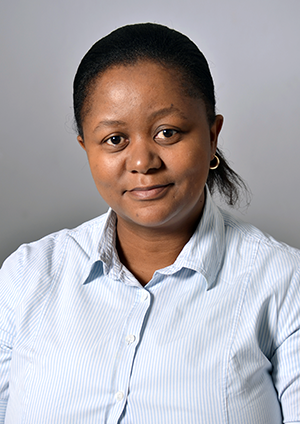News & Events
You too can become an NRF-rated researcher

Prof Solomon Kgatle (NRF Y2-rated researcher and associate professor: Department of Christian Spirituality, Church History, and Missiology, CHS)
Are you a young researcher, under the age of 40, who has obtained a doctorate in less than five years? Have you ever wondered what it will take for you as a scholar to become a Y National Research Foundation (NRF) rated researcher? The Research Support Directorate asked Professor Mookgo Solomon Kgatle, an NRF Y2-rated researcher and an associate professor in the Department of Christian Spirituality, Church History, and Missiology in the College of Human Sciences (CHS), about his rating and research activities. This is what he had to say:
What research activities have you been busy with since being recognised as an NRF-rated researcher in 2019?
I have been doing research on the history, mission and theology of South African Pentecostalism, specifically on what I call new prophetic churches (NPCs). The objective of my research is to understand the abuse of religion within NPCs, the gullibility of society, and reasons behind their gullibility. I have published several articles in high-impact journals and a book with Routledge with the title, The fourth Pentecostal wave in South Africa: a critical engagement. I am currently editing a book with Allan Anderson, an emeritus professor at the University of Birmingham, under the title The abuse of Spirit in Pentecostalism: a South African perspective.
What motivated you to apply for an NRF rating?
I wanted my peers to evaluate my research in order to receive recognition for my work and be counted among the best in the academic world.
Please describe the application process.
The application process opens around September annually and is done online where the applicant answers questions related to his/her research. The process is rigorous as it is subject to internal review by the college and institutional vetting committees. If successful, it will then be submitted to the NRF by the end of January the following year and be reviewed by experts in the field for the rest of the year. Therefore, the whole process takes about 16 months from the initial application until rating. For example, I applied in September 2017, was evaluated the whole of 2018 and received my rating in January 2019. So, the earlier one applies, the better. The rating is valid for six years and one can apply for re-rating thereafter.
Why is it important to have an NRF rating?
NRF-rated researchers see the importance of having a niche area. Prior to my NRF rating, my research activities were too scattered, addressing anything in theology. However, since my rating I have concentrated on a niche area. Secondly, you are encouraged to publish high-quality research outputs in high-impact journals and to collaborate with leading international scholars in your field. Lastly, your research, although it is conducted locally, will have an international impact. This in turn will benefit your undergraduate and postgraduate students from your internationally recognised and cutting-edge research.
What are the benefits of being an NRF-rated researcher?
NRF-rated researchers receive a once-off incentive from the NRF which they can use for their research. They also have an opportunity to apply for other research support grants depending on their rating category (i.e. Y, C, B, and A). In addition, each institution has a way of incentivising their NRF-rated researchers. Similarly, NRF ratings make it easy for institutions to evaluate employees for promotions.
What advice would you give to a researcher wanting to apply for an NRF rating?
First, you need to sign up on the NRF online system and update your CV so that your application is ready when submissions open in September. Second, find a niche area within your field, have a multidisciplinary approach to your research and collaborate with others. Ka Sepedi bare “Tau tja hloka seboka di shitwa ke Nare e tlotja” (lions that fail to work as a team, struggle to bring down even a wounded buffalo). Third, ensure that you have published in a variety of publications (i.e. book chapters, peer-reviewed articles and books). Fourth, the peer-reviewed articles should be in a variety of high-impact journals (i.e. journals that are indexed by either Scopus or Web of Science). As the saying goes, “do not put your eggs in one basket”. Last, have an ORCID iD and be visible in research networks like ResearchGate, academia.edu and Mendeley. This will ensure that people read and cite your work. As Matthew 5:14 says, “a city on the hill cannot be hidden”.
For more information about the NRF rating process, you can contact Winnie Motsatsi, motsawm@unisa.ac.za, from the Research Support Directorate.
*Interview by Mpho Moloele, PR and Communications Assistant, Department of Research, Innovation, and Commercialisation
Publish date: 2020/05/21
